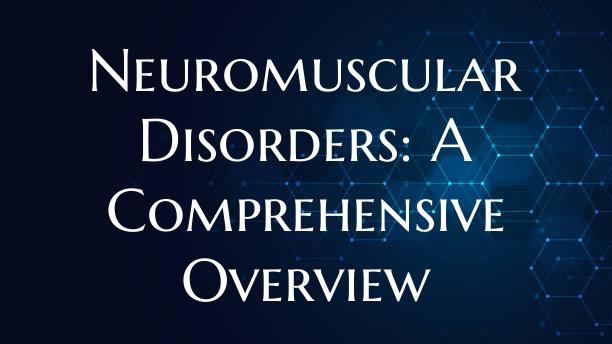
Neuromuscular Disorders: A Comprehensive Overview
Neuromuscular disorders encompass a wide range of conditions that affect the nerves responsible for controlling muscle movement. These disorders can have a significant impact on an individual's quality of life and ability to perform daily activities. This comprehensive overview will delve into the different types of neuromuscular disorders, their causes, symptoms, diagnosis, treatment options, and management strategies.
Types of Neuromuscular Disorders: 1. Muscular Dystrophies: These are a group of genetic disorders characterized by progressive muscle weakness and degeneration. 2. Peripheral Neuropathies: Conditions that affect the peripheral nerves leading to symptoms such as numbness, tingling, and muscle weakness. 3. Motor Neuron Diseases: Disorders that affect the nerve cells responsible for controlling voluntary muscle movement, such as amyotrophic lateral sclerosis (ALS). 4. Myasthenia Gravis: An autoimmune disorder that causes muscle weakness and fatigue due to communication issues between nerves and muscles. 5. Charcot-Marie-Tooth Disease: A hereditary neuropathy that affects motor and sensory nerves, leading to muscle atrophy and weakness.
Causes of Neuromuscular Disorders: - Genetic factors play a significant role in many neuromuscular disorders. - Autoimmune responses can lead to conditions where the immune system attacks the body's own nerve cells and muscles. - Environmental factors, infections, toxins, and medications can also contribute to the development of some neuromuscular disorders.
Symptoms of Neuromuscular Disorders: - Muscle weakness and atrophy - Numbness or tingling - Fatigue - Difficulty walking or performing fine motor tasks - Cramps and muscle pain
Diagnosis of Neuromuscular Disorders: - Physical examination and medical history - Electromyography (EMG) to assess muscle and nerve function - Nerve conduction studies to evaluate the electrical activity of nerves - Genetic testing for hereditary conditions
Treatment Options and Management Strategies: - Physical therapy to improve muscle strength and function - Medications to manage symptoms such as pain and muscle spasticity - Assistive devices like braces or wheelchairs to aid mobility - Surgical interventions in some cases - Supportive care and counseling for patients and their families
In conclusion, neuromuscular disorders pose challenges to those affected, but with proper diagnosis, treatment, and management, individuals can lead fulfilling lives. By understanding the different types of these disorders and their impact on the body, healthcare professionals can provide tailored care to improve the quality of life for patients with neuromuscular conditions.